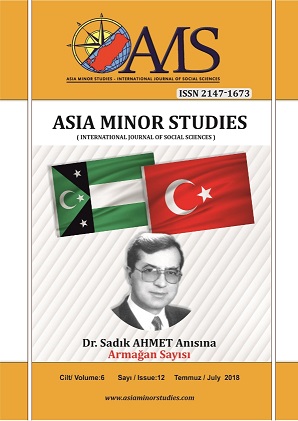Türk Halk Kültüründe Geçiş Dönemlerinin G. Hofstede’nin Kültürel Boyutlarindan Erillik-Dişillik (Masculinity) Faktörüne Göre Değerlendirilmesi
Evaluatin of Transition Periods in the Turkish Folk Culture from the Perspective of “Masculinity/Feminity” Dimension in G. Hofstede’s Cultural Dimensions
Author(s): Refiye Okuşluk-ŞenesenSubject(s): Gender Studies, Customs / Folklore, Social Philosophy, Social Theory, Sociology of Culture
Published by: Kilis 7 Aralık Üniversity
Keywords: Turkish Folk Culture; Transition Periods; G. Hofstede; Masculinity / Femininity Dimensions; Intercultural Communication;
Summary/Abstract: Different scholars have made a variety of classifications for the dimensions of cultural differentiation. G. Hofstede is a social psychologist and one of the leading representatives of organisational sociology in the field of intercultural communication. He provided five parameters to explain the cultures that are examined in national and organizational contexts. These are power distance, individualism / collectivism, masculinity / femininity, uncertainty avoidance and long / short term orientation. According to the parameter titled Masculinity and Femininity, for instance, there is a strict distinction between male and female roles in societies where masculine cultures are dominant. In societies where feminine culture is dominant, harmony and agreement between individuals are important. Covering up a conflict is a more acceptable method. This study at first examines the Turkey Case of G. Hofstede's "Masculinityfemininity" cultural dimension and then tries to determine how those tendencies and practices that provide basis for this analysis could match Turkish folk culture in the transition periods.
Journal: Asia Minor Studies
- Issue Year: 2018
- Issue No: 12
- Page Range: 297-316
- Page Count: 20
- Language: Turkish

